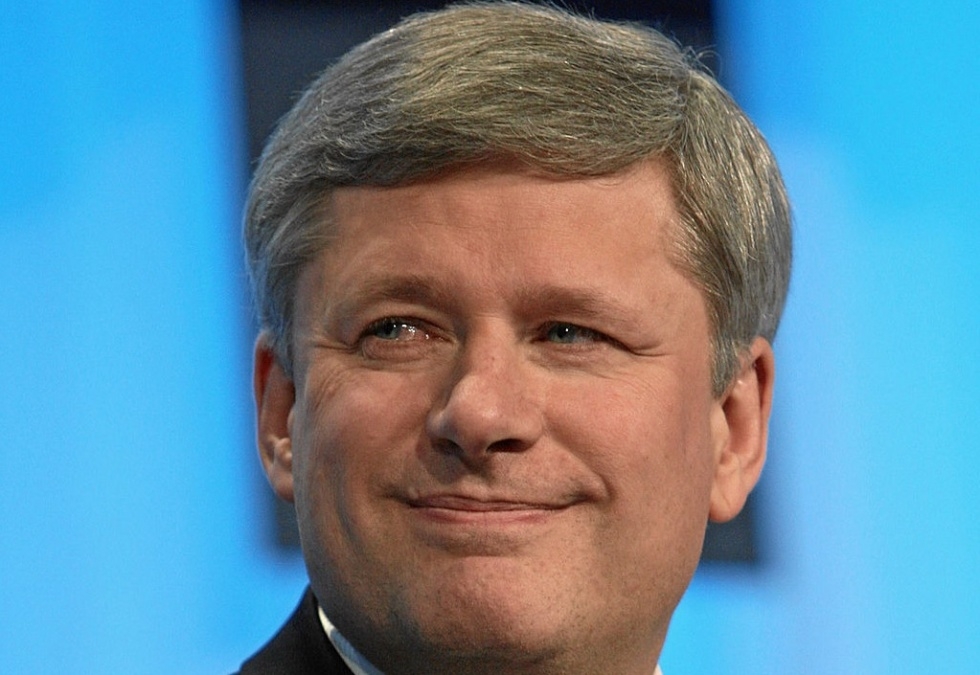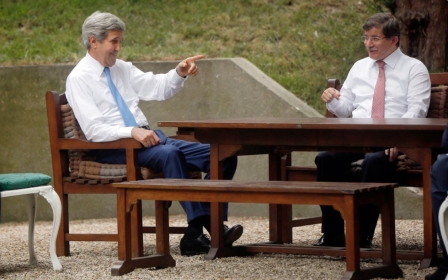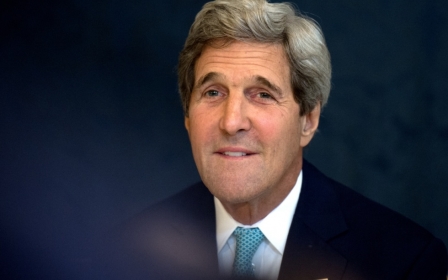Why is Canada Israel’s new best friend?

Canada’s reputation as a peace-loving nation and as an “honest broker” in the Middle East - part of its national mythology - has been dealt a serious blow by the ruling Conservative party’s adamant support for Israel’s Prime Minister, Benjamin Netanyahu.
In the midst of international condemnation of Israel’s attacks on civilians in Gaza, Canada’s ambassador to the UN issued a statement last week unequivocally supporting Israel’s “right to defend itself” and maintaining that Hamas was a “terrorist organisation”, laying blame for civilian deaths firmly at their feet.
“Ten years ago,” says Steve Hibbard, a former diplomat who helped formulate Canadian policy on Israel/Palestine, “I used to feel sorry for Australian colleagues at the UN, as their country was the most unmitigated supporter of Israel in the Western world. But now we’re in that position, however ridiculous it might appear.
“Harper’s policies,” says Hibbard, who was based in Cairo, Tel Aviv and Ramallah, “are not in Canada’s best interest. We could be pursuing our regional interests far more effectively if we were not perceived as being ‘unbalanced’.”
One-eyed foreign policy
Indeed, since his election in 2006, Prime Minister Stephen Harper has broken with Canada’s long time reputation as a “neutral broker’ in the Middle East, for a consistently pro-Israel, indeed many would say pro-Likud stance. At odds with President Obama’s somewhat cautious attitude towards Prime Minister Netanyahu, and indeed with Canadian public opinion, Harper’s Conservative government, says Paul Heinbecker - a former Canadian ambassador in the region - has pursued an “unprincipled” and “one-eyed foreign policy that sees Israeli virtues and turns a blind eye to Israeli transgressions and Palestinian suffering and rights”.
While Harper’s support for rightwing Israeli politicians is in step with his support base, a large component of whom are evangelical Christians fundamentally opposed to a two-state solution, it’s becoming an issue in his growing unpopularity with Canadian voters.
Harper’s policies have already alienated environmentalists, feminists and leftwing political foes, but there is growing discontent with his adamant support for the rightwing Israeli status quo.
While Canada and Israel: Building Apartheid, a recent book by Yves Engler, puts paid to the idea that Canada ever was an “honest broker” when it came to Israel/Palestine (the book documents the history of Canadian Christian Zionism; Lester B Pearson’s important role in UN negotiations to create a Jewish state on Palestinian land; the millions of dollars in tax-deductible donations used to expand Israeli settlements in the West Bank and the Canadian Security Intelligence Service ties to the Mossad), Harper’s policies have been exceptional.
His unprecedented support for Israel began as soon as he was elected but swelled when the Harper government cut funding to KAIROS in 2009 - a well-regarded NGO deemed too “pro-Palestinian”(a headline in Rabble, Canada’s leftwing online magazine, argued that the “Harper government treatment of KAIROS is worthy of a dictatorship”), and reached a peak in 2012 when, alone among G8 leaders, Harper refused to embrace Obama’s peace plan based on pre-1967 borders.
Canada’s vote against a Palestinian bid for statehood later that year (contrary to the wishes of a majority of Canadians according to polls) further damaged its status at the UN and its international reputation, says Heinbecker. “If former leaders of Shin Bet can admit the error of Israeli policies, it’s surprising that the Canadian government felt the need to go all the way to New York and make a statement of fealty to Israel in opposition to Palestinian aspirations,” he says of foreign minister John Baird’s impassioned pro-Israel speech. “If there was ever any doubt about where they stood, it was removed that evening.”
Indeed many Canadians are still shocked and embarrassed by Canada’s loss of the UN security council seat in 2010, which was widely attributed to its pro-Israel Middle East policy - and often held up by the Harper government as a badge of honour. Recent incidents - such as a public petition last year (inspired by an Israeli one) against IDF expulsions of Palestinians and Bedouins by leading Canadian writers such as Yann Martel and Margaret Atwood - may be indicative of growing public opposition to Harper’s policies.
Citing a 2013 BBC international poll that showed 57 percent of Canadians view Israel's influence in the world as mainly negative, CJPME (Canadians for Justice and Peace in the Middle East) rep Joan MacNeil notes, “The Harper government is clearly ignoring Canadians unease with Israel's conduct.”
Citing another 2011 BBC poll showing a majority of Canadians supported Palestine’s bid for statehood, she says “John Baird still trotted off to the UN to deliver a blistering attack on the Palestinians for daring to bring the matter to the UN, and Canada voted against the UN resolution.”
Keith Neuman, executive director of the social research-oriented Environics Institute in Toronto agrees that there’s a disconnect between Conservative government policy and voter sentiment.
“Canadian foreign policy is not in line with broad public opinion,” he says, “And the government might not dispute that, as they play to their base and know specifically who they are targeting.”
That base, he notes, includes a large number of evangelical Christians - who, as Canadian author Marci Macdonald, noted in her book The Armageddon Factor- are traditionally pro-Israel.
“We work closely with evangelicals,” says B’nai Brith Canada CEO Frank Dimant, admitting that while they may “differ on social issues” he enjoys their “strong support for Israel”.
He notes that Harper was the first ever Canadian prime minister to call Israel an “ally” and thinks his policy shift shows “strong conviction and a willingness to participate in international affairs”.
Ideological conflict
While Canada’s policy on the Middle East may be more keenly noted in Arab countries than in Israel, Dimant says “the foreign ministry in Tel Aviv definitely appreciates our principled stand” and he sees Canada as an important battleground in an international ideological conflict on Israel/Palestine, noting that Israeli Apartheid Week began at the University of Toronto before being exported globally.
“The idea of Canadians as peacekeepers only - that’s changed,” he says. “The world has changed and Canadian foreign policy has changed with it.” He sees Harper allying himself with Israel “on the frontline of the war against Islamic radicals”.
Former Canadian ambassador to Israel Michael Bell agrees that there is “very little reality” to Canadians’ image of themselves as “peacemakers”, especially in the Arab world where aid from the Harper government has been focused on security and policing issues. He sees Harper and Netanyahu as having much in common. “Both have strong ideologies and they both want to portray themselves as tough, security minded leaders.”
Jewish-Canadian activist and Boycott, Divestment and Sanctions supporter Judy Rebick thinks that Harper’s extreme position may have actually encouraged more public criticism of Israeli policy “because people need to have a different voice on the Middle East”.
With many rallies protesting Israel’s bombardment of Gaza happening throughout the country, and with groups like Independent Jewish Voices actively opposing Israeli actions, she may be right. But this is not reflected at the level of mainstream politics. An “open letter” to all three official political parties decrying their “partisan” policies on the current situation, signed by hundreds of academics and activists, was published on 24 July in Canada’s daily newspaper Globe and Mail.
Liberal leader Justin Trudeau’s recent statement on Gaza was similar to the Conservative one. Rebick suggests that Thomas Mulcair (the leader of the leftwing New Democratic Party, now the second largest in parliament) is “one of that party’s most vehement defenders of Israel”, mentioning his successful muting of party criticism of the bombing of Gaza in 2009 and his calling for the resignation of NDP colleague Libby Davies in 2010 for a statement she made on the “occupation” of Palestine.
More recently, Paul Manly, the son of former NDP MP Jim Manly, had his candidacy vetoed by the party apparently because of his criticism of lack of government intervention when his father was arrested and detained together with others on board a Swedish ship bearing aid bound for Gaza in 2012. “I have not received a written reason for this refusal and was told I will not receive a written reason,” he said. “I was told verbally on the phone, that the reason was in relation to what I said and did when my father was in Israel.”
But Rebick sees a shift in Canadian public opinion on Israel/Palestine, led by campus BDS campaigns as well as by gay rights activists like Tim McCaskell who have challenged Israel’s “pink-washing”.
The situation, she says, “reminds me of the 80s when no politician was wiling to endorse the pro-choice movement because of the ferocity of the anti-choice movement,” in spite of public opinion. That situation has now changed radically. Even Harper, with his wide base of evangelical support, has not raised issues around abortion or gay rights.
“That would be risky,” notes Steve Hibbard. “But the Middle East is far enough away and there is such widespread ignorance about the situation there that they can still afford to maintain a pro-Likud stance.”
The exception, he says, is in Quebec, where “people are more aware of the situation and more likely to support the Palestinian cause”.
But, says Hibbard, who has 40 years of experience in the region, “Harper’s policies are a liability for us internationally. I think that, diplomats and businessmen know that, but maybe not the average voter … not yet at least.”
Hadani Ditmars is a former editor at New Internationalist magazine and has been published in the New York Times, the London Independent, The Globe and Mail, Newsweek and Time (www.hadaniditmars.com)
The views expressed in this article belong to the author and do not necessarily reflect the editorial policy of Middle East Eye.
Photo credit: Come commenters say Canadian Prime Minister Stephen Harper's pro-Israel stance is a liability for the country (Wikicommons)
New MEE newsletter: Jerusalem Dispatch
Sign up to get the latest insights and analysis on Israel-Palestine, alongside Turkey Unpacked and other MEE newsletters
Middle East Eye delivers independent and unrivalled coverage and analysis of the Middle East, North Africa and beyond. To learn more about republishing this content and the associated fees, please fill out this form. More about MEE can be found here.





